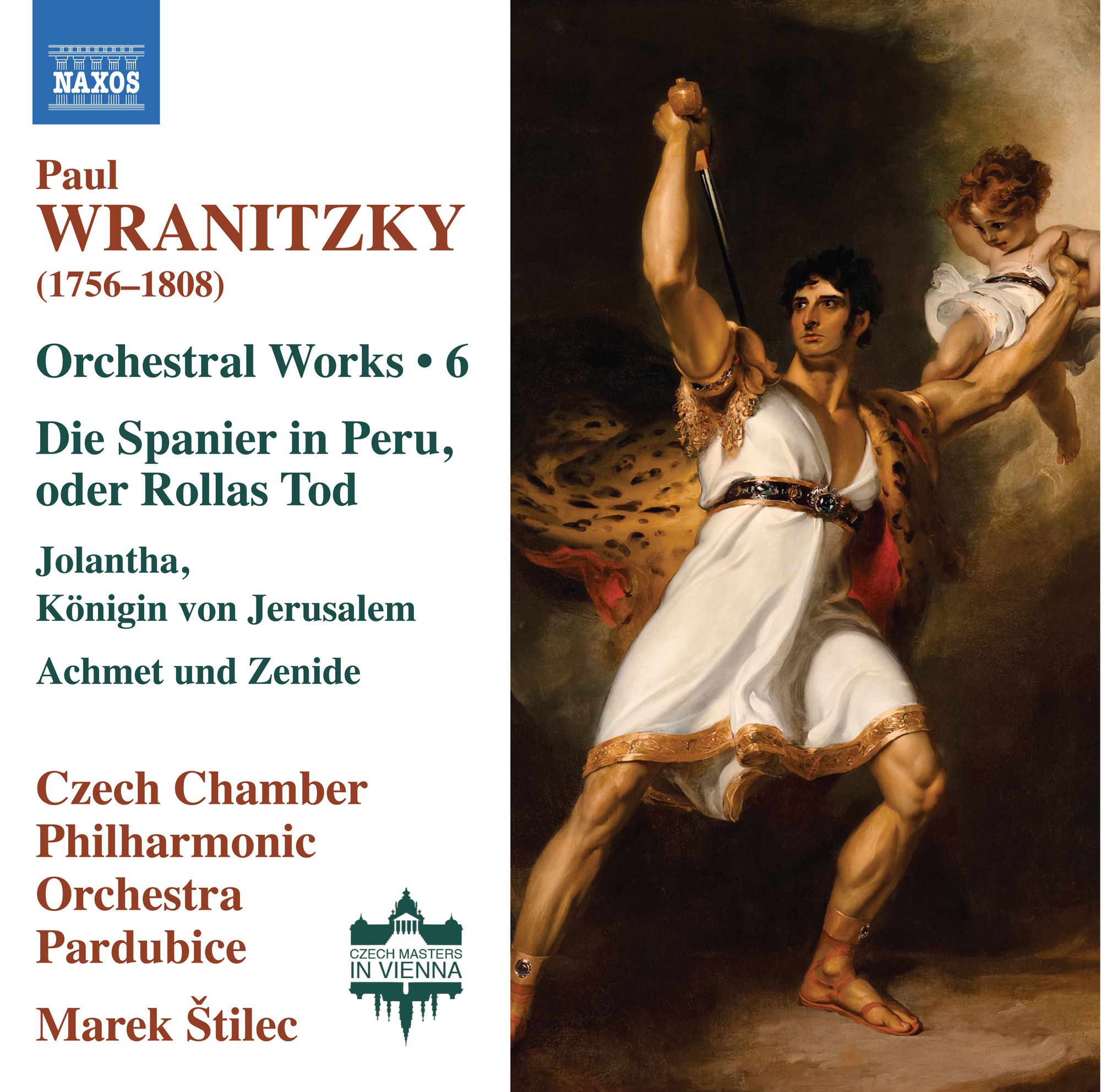Spain, Peru & Jerusalem: Paul Wranitzky returns ...
Another fine release in Noxos’ Wranitzky's series

Far from Classical Explorer’s first Paul Wrantizky rodeo (try these: Das Waldmädchen; Orchestral Works, Volume 1; Orchestral Works, Volume 2; Orchestral Works, Volume 3; Orchestral Works, Volume 4 (the full-length ballet-pantomime Das Waldmädchen). This new album by the excellent Czech Chamber Orchestra Pardubice under Marek Štilec concentrates on his incidental music for plays.
We begin with Wratizky’s music to August von Kotzebue's five act tragedy Die Spanier in Peru, oder Rollas Tod (The Spaniards in Peru, or the Death of Rolla) from 1795. There is drama aplenty here, i nthe slow Largo opening of the Overture to act one as well as in the whole of the Overture to the second act. It is the Overture to the second act that is a ‘battle’ overture with a possible reference to the famous ‘La Folia’ in its musical materials; and there is certainly no missing the trumpet fanfares. Listen also to the solo cello concertante section post-conflict - sadly, the excellent solo cellist is not named:
Could there be anything happier than the Marcia from the first scene of the second act? It is certainly jolly and boasts some interesting janissary percussion, as we can hear from this video - a luxury! - of the piece:
The final Overture heard here is that to the fourth act includes some lovely, molten clarinet and bassoon solos decorated by another bassoon gesture - a lovely touch. It is like a woodwind dvertimento; it could almost be designed for open-air performance in the manner of and number of Classical serenades. The opening, energy-laden scales could easily be construed as post-Haydnesque. There's a lovely clarinet solo with delicious bassoon curclicues (again, what a pity we cannot actually mention the players. When the bassoon takes over the tune we learn that the bassoon decorations were via the second player, so we get a rare bassoon duet:
There is a deliberate omissionin Die Spanier - the Overture to the fifth act, which doubles as the slow movement of a symphony that will arrive later in this excellent series.
With the march of Die Spanier in Peru came great jollity; with the march from Jolantha comes great sadness for here is a ‘Trauermarsch’ marked Larghetto. Jolantha is a four-act tragedy (Jolantha, Königin von Jerusalem, to give the full title; 1794). It is absolutely beautiful:
... as is the eminently tasteful overture to this opera set in 1135 Jerusalem. The overture reveals the dual spiritual/military aaspect of the Knights Templar in its multipaceted demeanour.Personally, I find it a little less inspired than the music for Die Spanier, but see what you think:
Wrantizky obviously likes battle symphonies, for there is another one (quite exciting, and again no missing the conflict) here. The combatants in this instance are the Knights Templar and the Muslims:
It is the bassoon, followed by the clarinet, who again features prominently in a slow movement (the third act overture) - performances of solo lines here drip with character:
There strikes me as someting very Beethivenian about the Adagio opening of the fourth act Overture; the Allegro giusto is pure Wrantizky, though:
The final piece is Achmet und Zenide (1796, a five-act opera to August Wlhelm Iffland's play. Another Turkish piece, you cannot miss the local colour in the Overture to the first act:
Despite Wrantzky's skill, though, it is the seond act's opening, designated as an ‘Overture-Capriccio,’ that impresses. It is absolutely delightful, and bits of it could almost be ballet music:
It is the lyrical side of Wrannitzky's inspiration that really shines out in this music, though: the Adagio feom the fourth act Overture (which frames a central Allegretto) is beautiful, and Štilec finds just the right sense of flow, just as his soloists find just the right level of eloquence:
The Overture to the fifth and final act could almost be a symphonic finale, justling and hustling its way along:
Another fine release in Naxos’ Wranitzky series, then, with the Pardubice orchestra under Štilec once more staunch advocates of this composer's very worthy music.
